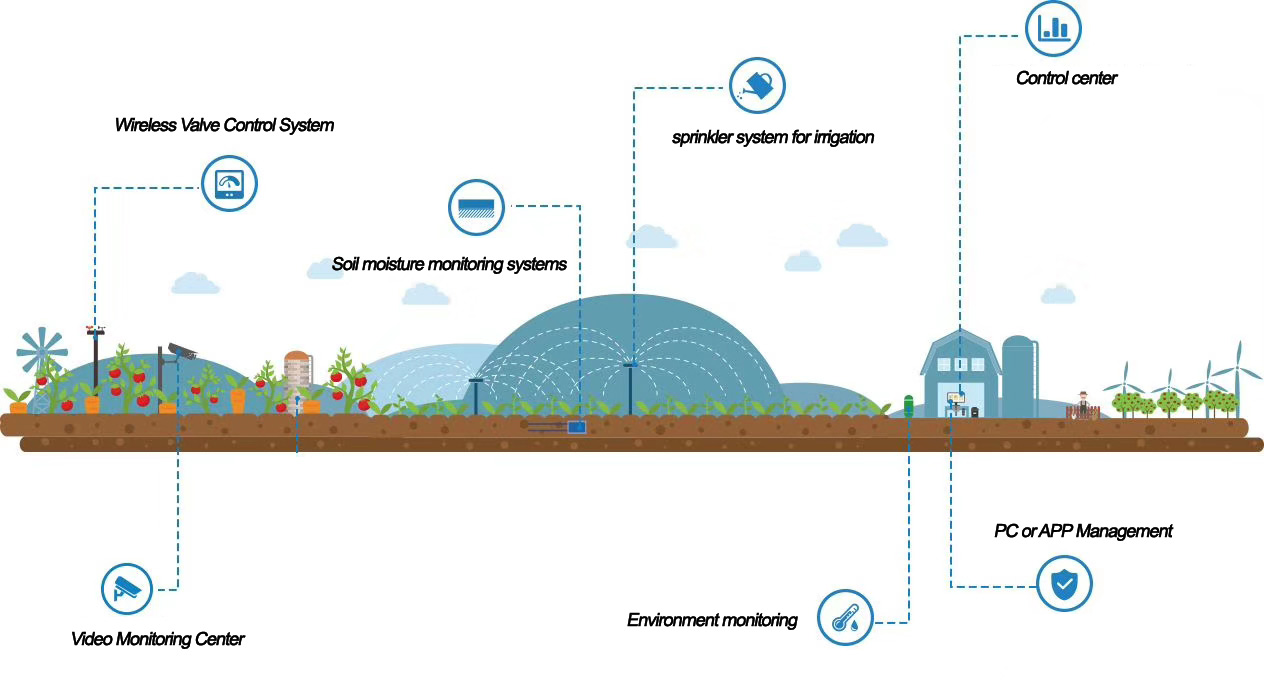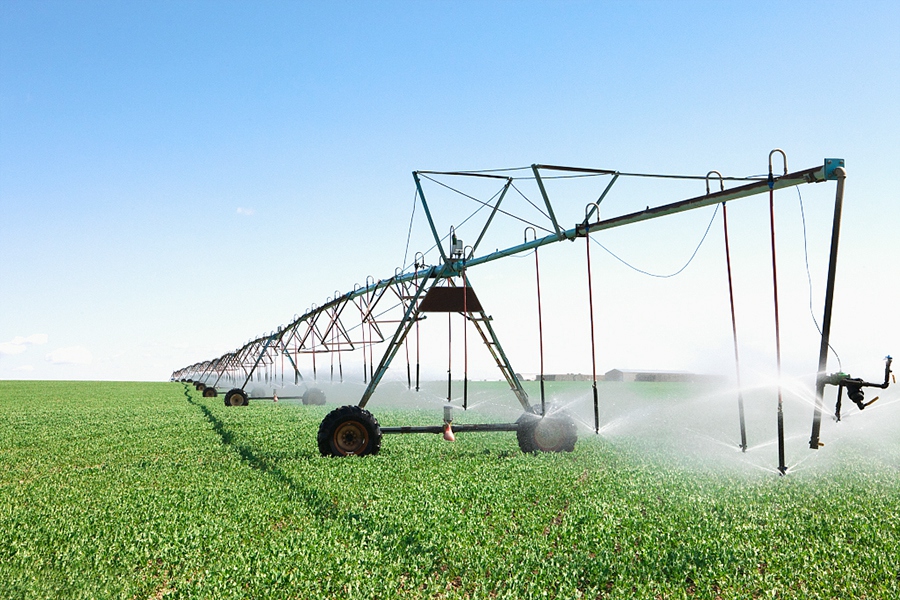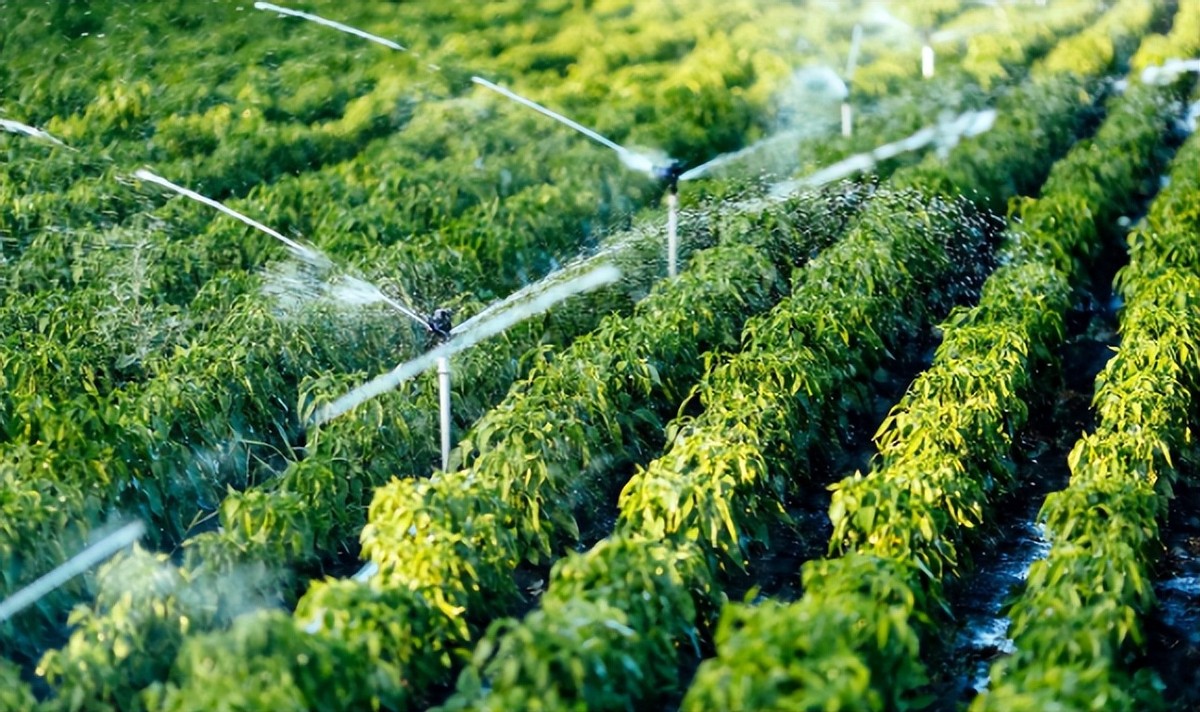

— Blogs —
—Products—
 Consumer hotline +8618073152920
Consumer hotline +8618073152920 WhatsApp:+8615367865107
Address:Room 102, District D, Houhu Industrial Park, Yuelu District, Changsha City, Hunan Province, China
Product knowledge
Time:2024-01-07 17:14:00 Popularity:1526
Moisture sensor irrigation system is a kind of intelligent agricultural equipment that combines moisture sensor and automatic irrigation technology. Its main function is to detect soil moisture and automatically adjust the irrigation water volume according to the change of soil moisture in order to maintain the appropriate soil moisture level to meet the needs of crop growth. The system mainly consists of three parts: moisture sensor, control system and irrigation equipment.
The first part: soil moisture sensor
Soil moisture sensor is an instrument used to measure the amount of moisture in the soil. It can be used to monitor the moisture status of the soil, thus helping people to understand the growth of plants and decide whether they need to be watered or not.

The soil moisture sensor consists of a stainless steel probe and a waterproof probe, which can be used for a long time buried in the soil and embankment, for spot monitoring and on-line measurement of moisture in surface and deep soil.
The soil moisture sensor has the following characteristics:
1. High precision: it can accurately measure the moisture content in the soil with less error.
2. Good stability: due to its stainless steel probe and waterproof probe design, the sensor has good stability and can work stably for a long time.
3. Easy to install: the soil moisture sensor is designed to be lightweight and easy to install, just need to bury it in the soil.
4. Reusable: Due to its long design life, it can be reused to reduce costs.
Soil moisture sensor is an important soil monitoring instrument, which can help people better understand the growth condition of plants, so as to decide whether watering is needed or not, and promote the healthy growth of plants.

Part II: Irrigation Control System
The control system is the core of the whole system, which compares the soil moisture data with a preset threshold to determine whether irrigation is needed. If the soil moisture is below the threshold, the control system will automatically start the irrigation system to add the right amount of water to the soil; if the soil moisture is above the threshold, the system will automatically turn off the irrigation system and stop watering. In addition, the control system can set the irrigation time, water volume, frequency and other parameters to realize intelligent irrigation management.

Part III: Irrigation equipment
Irrigation equipment includes water pumps, pipes, sprinkler heads, etc., which are used to execute the irrigation commands of the control system and provide the right amount of water to the farmland. According to different irrigation methods, there are various types of irrigation equipment, such as surface irrigation, drip irrigation, sprinkler irrigation and so on.
The advantages of humidity sensor irrigation system include:
1. Intelligent management: by automatically monitoring and controlling the amount of irrigation water, intelligent irrigation management can be realized to improve the efficiency of water use and save energy.
2. Efficient management: humidity sensor irrigation system can reduce the burden of manual management, avoid errors and delays in manual operation, and improve the accuracy and timeliness of irrigation.
3. Improvement of yield and quality: Through precise control of soil moisture, it can better meet the needs of crop growth and improve crop yield and quality.
4. Protect the environment: through rational use of water resources and precise control of irrigation water, it can reduce the waste and pollution of water resources and protect the ecological environment.

The use of humidity sensor irrigation system has a wide range of scenarios, mainly including the following aspects:
1. Farmland irrigation: applying the humidity sensor irrigation system in farmland can monitor soil moisture in real time and automatically adjust the amount of irrigation water according to the changes in soil moisture to meet the needs of crop growth. This intelligent irrigation method can improve the efficiency of water utilization and agricultural production.
2. Greenhouse environment monitoring: applying humidity sensor irrigation system in greenhouse can monitor soil humidity and air humidity in the greenhouse, and adjust the environmental factors in the greenhouse, such as temperature, light, airflow, etc., according to the monitoring data, so as to provide a suitable growing environment for plants.
3. Farming applications: In the farming industry, the humidity sensor irrigation system can be used to monitor the humidity in the livestock and poultry house to maintain a suitable breeding environment. For example, in chicken farms, by monitoring the humidity in the chicken house, the environment in the chicken house can be adjusted to reduce the occurrence of disease and mortality of chickens.
4. Precision agriculture application: humidity sensor irrigation system can be combined with other sensors and equipment to form a precision agriculture system. Through real-time monitoring of soil moisture, temperature, nutrients and other parameters, you can accurately control the supply of water and nutrients to the farmland, and improve the yield and quality of crops.
5. Application in the field of scientific research: in the field of agricultural research, humidity sensor irrigation system can be used to study the law of change of soil humidity and its impact on crop growth. By arranging the humidity sensor in the experimental field, the real-time data of soil humidity can be collected to provide experimental basis for agricultural research.
In summary, the humidity sensor irrigation system is an intelligent, efficient and environmentally friendly irrigation method, the use of humidity sensor irrigation system is very wide range of scenarios, through the application of the system can help farmers to better manage the farmland and improve the efficiency of agricultural production, which can improve the conservation of water resources, protect the ecological environment and promote the sustainable development of agriculture.
Prev:What is the environmental sensor?
Next:Moisture Sensor Irrigation System Application Scenarios and Installation
Related recommendations
Sensors & Weather Stations Catalog
Agriculture Sensors and Weather Stations Catalog-NiuBoL.pdf
Weather Stations Catalog-NiuBoL.pdf
Related products
 Combined air temperature and relative humidity sensor
Combined air temperature and relative humidity sensor Soil Moisture Temperature sensor for irrigation
Soil Moisture Temperature sensor for irrigation Soil pH sensor RS485 soil Testing instrument soil ph meter for agriculture
Soil pH sensor RS485 soil Testing instrument soil ph meter for agriculture Wind Speed sensor Output Modbus/RS485/Analog/0-5V/4-20mA
Wind Speed sensor Output Modbus/RS485/Analog/0-5V/4-20mA Tipping bucket rain gauge for weather monitoring auto rainfall sensor RS485/Outdoor/stainless steel
Tipping bucket rain gauge for weather monitoring auto rainfall sensor RS485/Outdoor/stainless steel Pyranometer Solar Radiation Sensor 4-20mA/RS485
Pyranometer Solar Radiation Sensor 4-20mA/RS485
Screenshot, WhatsApp to identify the QR code
WhatsApp number:+8615367865107
(Click on WhatsApp to copy and add friends)
